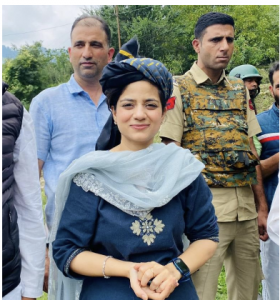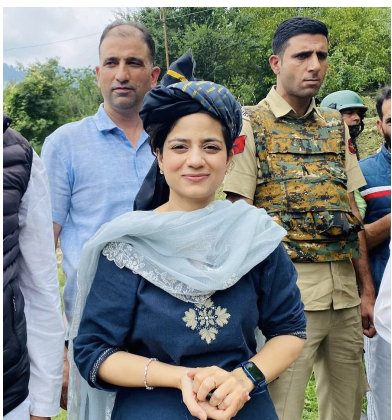SRINAGAR: Out of 327 candidates competing in the first two phases of the Assembly elections in Jammu and Kashmir, only 13 are women, underscoring a stark gender imbalance and the considerable challenges faced by women in the region’s political sphere. For the first phase of polling, scheduled for September 18 across 16 Assembly constituencies in Kashmir, there are 164 candidates. Of these, just five are women, making up 3.03 per cent of the total. Notable among these are Iltija Mufti, daughter of the People’s Democratic Party (PDP) president and former Chief Minister Mehbooba Mufti, and Sakina Yatoo of the National Conference (NC), who has previously served twice as a minister in the J&K government. The second phase, set for September 25, includes 164 candidates as well. Out of these, eight are women, accounting for 4.84 per cent. As in the first phase, two prominent female candidates stand out: Asiya Naqash, a former PDP minister, and Shamima Firdous of the NC, who has served three terms as an MLA. Both were among the only women elected in the 2014 Assembly polls before Mehbooba Mufti secured her seat in a by-election in 2016. Interestingly, women voters outnumber men in six out of eight Assembly segments in Srinagar district, which will also vote on September 25. Despite this, cultural norms and traditional gender roles significantly influence women’s political participation in Jammu and Kashmir. A 2023 study by the Centre for Social Research revealed that societal expectations often relegate women to secondary roles, with many perceiving politics as an unsuitable field for them. Iltija Mufti, contesting from the family stronghold of Bijbehara in South Kashmir, is running an energetic campaign. She asserts her capability and determination to address people’s issues in the Assembly, stating, “My mother was a female Chief Minister in her cabinet.” Sakina Yatoo of the NC highlights her party’s commitment to women’s rights, noting that their manifesto promises to advance women’s welfare. On the issue of the low number of female candidates, she suggests that while male candidates have historically dominated, committed women must eventually step forward. “Women are leading in every field, and over time, more will join the electoral fray,” Yatoo adds.


